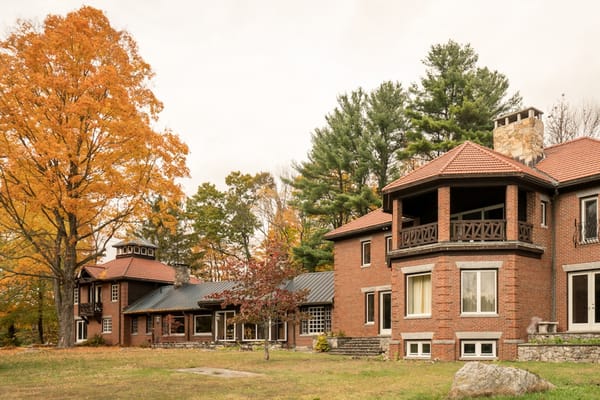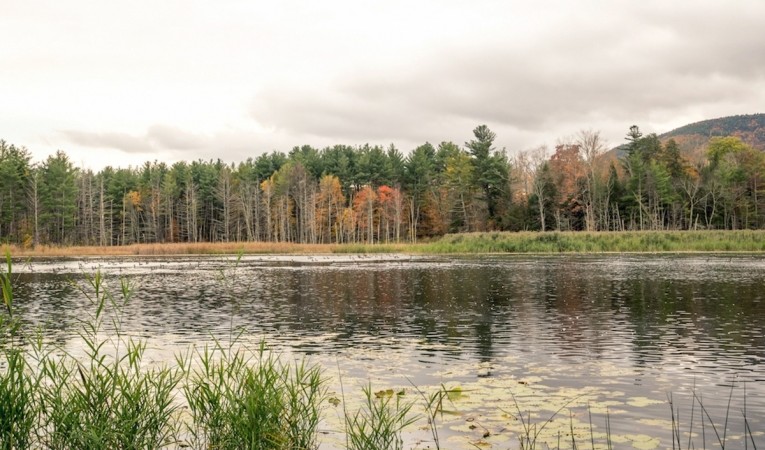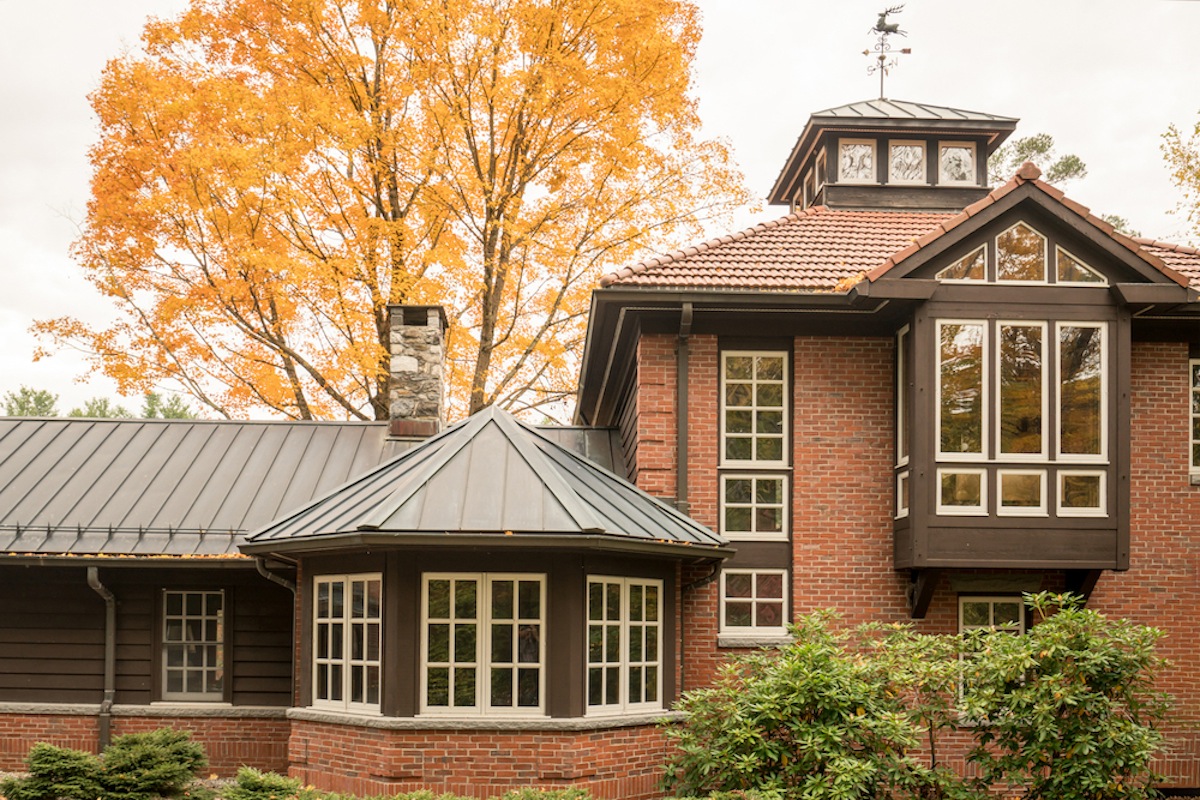Shared Estates Introduces A New Concept In Real Estate
It's a novel investment opportunity: a share in a restored historic property, to be used as a luxury, short-term rental.

It's a novel investment opportunity: a share in a restored historic property, to be used as a luxury, short-term rental.

The future Freeman Berkshires. Photos courtesy of Freeman Berkshires
Shared Estates Asset Fund is a new real estate investment firm using crowdfunding to convert high-end, historic Berkshire estates into luxury group vacation getaways. The firm’s local founder Daniel Dus is currently raising hundreds of thousands of dollars through the Small Change website to rehab a gracious but outdated estate at 46 Bow Wow Road, in Egremont, Mass. into The Freeman Berkshires.
The vacation estate aims to provide an ultra-luxury, bespoke Berkshire experience to guests and a hefty return to investors. Though the details will make it clear, one could be forgiven for confusing the Freeman for a timeshare at first glance.
“It’s fundamentally different,” Dus said. “A time share is just a cost to you. Here you are investing in a real estate model where the real benefit, even if you never stay here, is a four times return on investment.”
Before The Freeman, Dus rehabbed the “Playhouse” property on the Westinghouse Foxhollow estate in Lee. Once the esteemed family’s home theater and gym, Dus converted it into a residence and then began renting it out to families and groups. He says it quickly became the most booked and best rated rental on VRBO. He sold the property in November for $1.35 million. Dus added that the success of the Playhouse shows the demand for this scale of project, and that the market for vacation rentals designed to accommodate parties of 10 to 15 people is vastly underserved.

With an average rate of $1,548 a night, split between a group, the price to stay at The Freeman is less than renting five rooms at a Holiday Inn. But the Freeman will also offer a slate of add-ons fit for the wealthiest clientele. There will be everything from gaming and theater rooms to a Tesla Cybertruck rental and a concierge service that will bring in amenities from surrounding businesses, including prepared meals and spa treatments, outdoor activities and even curated cannabis pairings, if that’s your style.
Using this model, employed more often in cities for multiple-unit real estate and businesses like strip malls, Shared Estates members own interest in the LLC and are entitled to a share of the yearly revenue over the life of the project. After no more than 10 years, they will resell the property, and investors will get a share of the sale as well. Dus says the exit strategy is opportunistic and dependent on the market.
This was made possible because of an SEC guidelines change in November 2020, increasing the cap an investment firm like Shared Estates can raise from crowd funding from $1 to $5 million. Since launching the project, Shared Estates uses the SEC-approved Small Change crowdfunding website to raise over $300,000. The initial goal of $100,000 was met shortly after the solicitation went live. At this writing there are 50 investors so far and there is still over a month left to garner more support. Investors get 15% off stays at the property and are expected to see at least a 400% return on investment over the life of the project.
“It’s an investment fund. Its reason for existing is to provide a return for investors,” Dus said. “But to do that we want to create the best possible experience for our clients and we want to take that experience out of the hands of solely the super wealthy and give it to the middle class. We believe these historic homes should be public resources.”
Set on 40 remote acres, Dus says, the Freeman is an expertly constructed brick mansion with some beautiful craftsman details. The renovation will focus on fully restoring and modernizing the interior and improving the outdoor amenities including adding an in-ground pool.
The property has been renamed The Freeman Berkshires in tribute to Elizabeth Freeman. Freeman was a former slave in Stockbridge, Mass., abused by her masters and the first African American slave to sue and win her freedom under the Massachusetts constitution. Shared Estates plans to contribute a percentage of profits to the Elizabeth Freeman Center, a local non-profit working to end the cycle of domestic abuse and violence. A series of sculptures by local artists in a garden on the property will pay tribute to Freeman as well.
“Elizabeth Freeman is a local hero,” said Dus. “I want all our guests to know her name and story, because it’s just as relevant today as it was then. The last four years, and what just happened at the Capitol have been eye opening. The goal is to remind folks that freedom and the rule of law are important.”
Born and raised in the Richmond, Mass., Dus attended the Darrow School, then Bucknell for his bachelors degree. From age 9, he knew he wanted to be a biochemist studying diseases and was on a PhD track at UMass Amherst. Though he admired the importance of the work he was doing, its repetition frustrated him and he dropped out just weeks into the program. It is clear Dus is a high-functioning multitasker so the fast-paced world of entrepreneurship and investing made for a better fit. He started software companies, rehabbed real estate and then went back to school at Drexel to formalize his business education.
Shortly thereafter Dus became head of renewables for North America at the Adani Group, India’s largest solar company. The $20 billion Group developed, built and owns what was the largest solar project in the world in 2016. During his decade in solar, Dus oversaw some of the largest solar projects in 17 states across the United States. He was also previously the CSO of Safari Energy, the leading provider of solar to Real Estate Investment Trusts, and CFO/COO of Martifer Solar USA.
With Dus’ experience in renewables it is no surprise Shared Estates has committed to making the Freeman and all future properties carbon neutral.
While risk is present in all investment, the current Berkshire real estate market is booming, as more affluent metropolitan residents flee cities to work remotely from the comfort of Western Mass. So, even though a national economic downturn looms, there is certainly some strong evidence that The Freeman will be a success for its investors and an inviting, accessible getaway for its guests.



